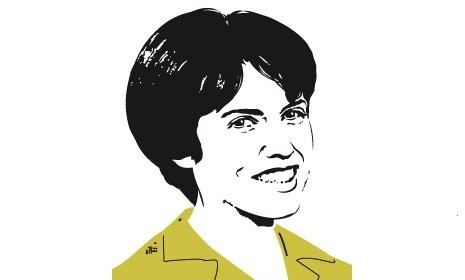The Irish Debacle
Ireland surged in the 1990s with low taxes and soaring home values. Now not even St. Patrick can save the Irish economy.

A free daily email with the biggest news stories of the day – and the best features from TheWeek.com
You are now subscribed
Your newsletter sign-up was successful
by Tish Durkin
On this St. Patrick's Day, the people of Ireland, North and South, can feel pride and relief that the recent murders of two unarmed British soldiers and a police officer by “Republican dissidents” have not only failed to revive “the Troubles,” but have reinforced the general commitment to peace. That’s especially fortunate right now, because the Irish certainly need to feel good about something. After almost twenty years of partying on the tab of the Celtic Tiger, the Irish economy does not have a mere hangover. It has whiplash—and that’s a special kind of pain.
Historically pitied as the slowest economy in Europe, Ireland surged ahead in the early 1990's on a potent blend of low corporate taxes, strategic investment, and European Union subsidies. Now, all of a sudden, some god of comeuppance has slammed on the brakes, and the whole country can feel itself going through the windshield.
The Week
Escape your echo chamber. Get the facts behind the news, plus analysis from multiple perspectives.

Sign up for The Week's Free Newsletters
From our morning news briefing to a weekly Good News Newsletter, get the best of The Week delivered directly to your inbox.
From our morning news briefing to a weekly Good News Newsletter, get the best of The Week delivered directly to your inbox.
The major causes of this crash are as clear as Waterford crystal, the parent company of which is now in receivership. Number one is the global meltdown. But blameworthy, too, is Ireland's own faith, embraced from the top of the leadership to the bottom of the economic ladder, that a fantastic property bubble would never burst. This led to wild over-reliance on the construction sector, the collapse of which is now all the more devastating. Economic growth having finally brought Christmas to Ireland’s coffers, the government took a Santa approach to spending, tossing large, unsustainable pay hikes to the public sector.
Last but not least were the absurd risks taken during the boom. Last summer, for instance, ten individuals invested a total of 451 million euro to buy a ten per cent stake in Anglo-Irish Bank . . . using money lent to them by Anglo-Irish Bank . . . in order to prop up the stock price of Anglo-Irish Bank. The stock plummeted anyway, imperiling both the bank and the investors, which included the biggest construction business in the country and a private hospital network. Anglo-Irish Bank is now owned by the citizens of Ireland.
As for the effects: Unemployment, recently an asterisk, is now at ten per cent and rising. Housing prices are in free-fall. Welfare rolls are up 87 per cent in one year. A new McDonald's just opened in Ennis. The management received 500 job applications, a notable portion of them from former lawyers, bankers and architects.
All this has shaken the Irish, and split their society along many lines.
A free daily email with the biggest news stories of the day – and the best features from TheWeek.com
Here as elsewhere, the most fraught social schism is between the high fliers and the working stiffs; between those who made a mess while making fortunes, and those who are now obliged to clean up the mess while losing their savings. But there are more particular Irish fissures, too.
Psychologically, there is a break between old and young—between those who remember when this country was much worse off than now (in effect, its entire pre-Tiger existence) and those who have only known the Ireland of plenty.
Ideologically, the crisis has strained the conflicting affections for American-style capitalism and European-style socialism. Like everyone else, the Irish like job security, 35-hour work weeks, plentiful holidays, low taxes, high salaries, and the good jobs that grow in entrepreneurial climates. But they have yet to fully accept that more capitalism means less socialism. For many years, Ireland was too poor to have this choice. Then, for a while, it was rich enough to avoid it. Not anymore.
Last June, Irish voters rejected the Lisbon Treaty and the closer association with Europe that it entailed. But now that euro-zone membership is widely viewed as the only thing—apart from the letter “r”—that distinguishes Ireland from bankrupt Iceland, the treaty is likely to be revived.
There is, however, at least one national conundrum that economic calamity seems to have resolved, however. This is the moral tug between elation at what Ireland has gained materially, and trepidation over what it has lost spiritually. Light fortune engendered a dark feeling; a nagging sense that a great national identity, forged over centuries of hardship, had weakened in just a few decades of ease; that some core mark of mettle had been washed away by the rising tide of wealth.
No one is worried about that anymore.